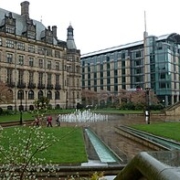Waste in Woking – Taxpayers will Pick up the Bill
The trivialisation and celebritisation of British politics continues apace. The headlines are dominated by why Nadine Dorries didn’t get her peerage (and why Charlotte Owens did – anybody got any ideas)? It is all about personalities and in particular our own Trump wannebee, Boris Johnson, the man who had damaged the UK more than anyone I can think of since 1945.
Meanwhile, stories that should be causing debate, analysis, and angry mobs with flaming torches marching in the streets, get limited coverage and little real analysis other than by a few dedicated journalists. For instance, we’ve mentioned before the billions wasted by a number of local authorities (councils) in the UK, including Thurrock, Liverpool, Slough, Croydon, and my own council, Surrey Heath.
But Woking – only 10 miles from my home – might turn out to be as big a scandal as any. The “bad buying” in this case is firmly in the property sector, as the Tory-led council “invested” in major developments both in their own town and more widely. Apparently, the idea was to make Woking the “Singapore of Surrey”, an idea so far-fetched you have to wonder what the council executives and elected representatives were smoking. (as the Guardian asked!) The council is now bankrupt, and I would be furious if I lived 10 miles down the road.
Woking has core revenues of around £16 million a year, and debts of around £1.8 BILLION currently. That debt to income ratio is the biggest we’ve seen so far in failed councils. It is likely that something around £600 million, maybe more, will need to be written off in terms of current asset valuations. A review into how this happened found that within the overall figure, the council borrowed £160m for purposes outside regulations and had “sub-optimal record keeping.” A huge amount was borrowed from the central government controlled Public Works Loans Body (PWLB) and total debts may end up at over £2 billion. A Section 114 notice has halted all spending on non-essential services.
As the Guardian said: “In Woking’s case, the 114 notice shows the council had advanced the colossal sum of £1.3bn – money borrowed from the PWLB – to joint venture companies, notably Victoria Square Woking Ltd, in which the council held a 48% stake and a Northern Irish developer, Moyallen Holdings, held the majority. Then the value of the assets fell”.
There are also questions about why Woking partnered with Moyallen, a relatively small property company, for the Victoria Square development. That venture still operates, but the Bank of Ireland placed four of Moyallen’s other operating units into administration – including two entities used to control the Peacocks Centre at Woking. The council’s former chief executive was allowed to operate far too independently, it seems. An “acquisition opportunity fund” allowed him to spend up to £3m on regeneration projects without formally approval from the council or executive, and that led to purchases including farmland for £1.5m, and £2.3m on two pubs, one of which burnt down!
Primary responsibility must fall with characters who have all moved on now – previous Tory Leader of the Council, David Bittleston, Chief Executive Terry Morgan, and Finance Director Leigh Clarke. It would be good to see those three in court charged with malfeasance in public office. However, all the councillors who failed to raise the alarm also share some blame. One councillor tried to sound the alarm about the dealings but was shouted down in council meetings.
But other stakeholders who deserve a lot more criticism than they are getting are those in central government. The majority of the loans came from the PWLB – a central government body within the Treasury that lends money to local councils. Concerned observers had contacted Treasury and the Department responsible for local government – currently called the Department for Levelling Up, Housing, and Communities (DLUHC) – about Woking but were ignored. In 2017, the Times “raised the alarm about reckless council spending” but were told by central government that “ that there were “strong checks and balances” in place to protect taxpayers’ cash”.
Well that was clearly total nonsense, so Treasury and DLUHC must share some of the blame for this fiasco. Partly because of that, government will have to bail out the council. There is no way local taxpayers can cover the debt (without bankrupting them personally) so this will effectively end up as a wider taxpayer debt write-off.
In recent years, we’ve seen both Labour and Tory councils getting into trouble around bad investments, bad buying and criminality at times too. This is about personal and systemic failures, not really party politics, although central government has failed to monitor the gross incompetence of these councils. So given the outlook for the next general election, and if Labour are serious about giving more power to local councils, we really need some new parallel measures put in place. We have to make sure more power does not simply lead to more huge failures, with more crooks and incompetents wasting or stealing huge amounts of our money.










I’d imagine that every procurement team in every local authority has had their total savings (that they worked so hard to achieve) since the start of Austerity wiped out by these ‘investments’ by a few Councils. What was the point?